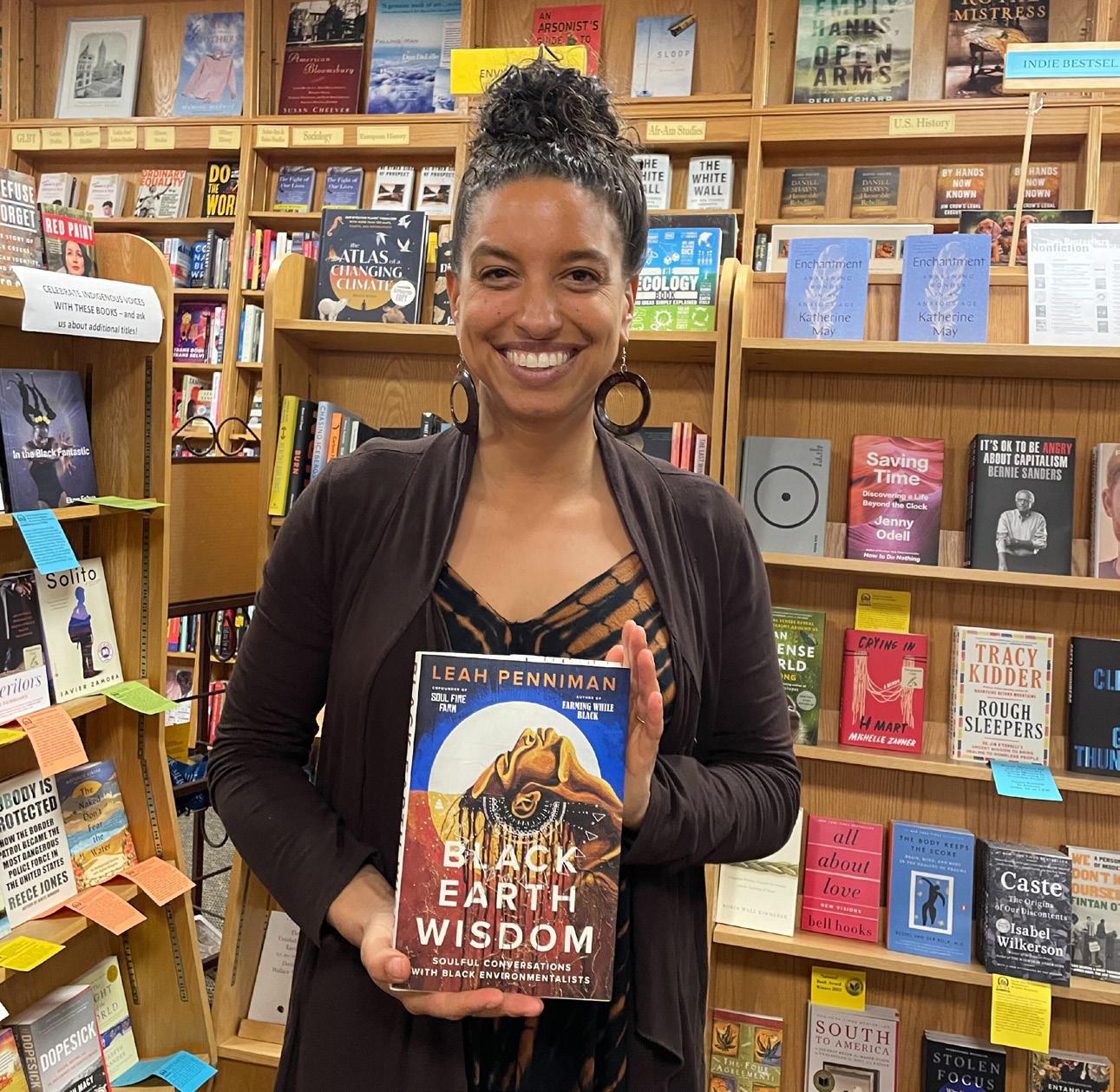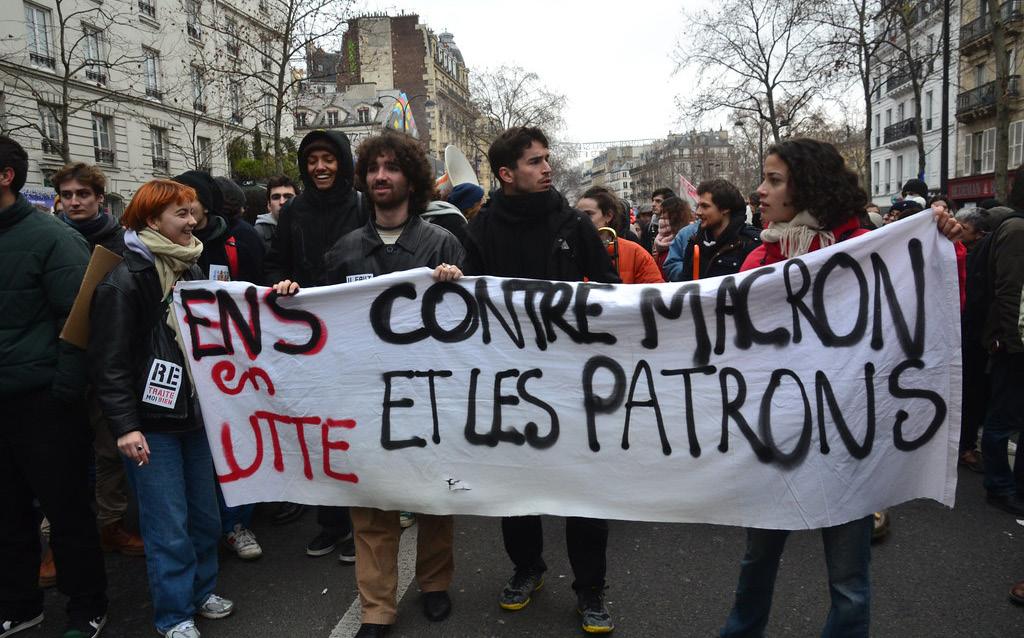
5 minute read
FMT hosts a screening of ‘Where the Pavement Ends’
BY LUCY ISAACS ’25 STAFF WRITER
On March 29, the department of film, media and theater hosted a screening of the film “Where the Pavement Ends,” followed by a student-moderated discussion with filmmakers Jane Gillooly and Khary Saeed Jones. The film explores the town of Kinloch, Missouri, which borders Ferguson, where Michael Brown was fatally shot by police in 2014. Describing the documentary, Gillooly’s website writes, “The history of Ferguson, a formerly whites-only ‘sundown town,’ and the neighboring black town of Kinloch, now semi-abandoned, is not well known. Incorporating reflections of residents of Kinloch and Ferguson (including Gillooly, who grew up in Ferguson), this film explores the relationship between these two towns.
Beginning with a 1960s roadblock that divided then-white Ferguson from black Kinloch, the film depicts a micro-history of race relations in America.”
“committed to the art of the narrative, how it can be constructed, and how complex and often hidden histories can be made accessible.” Having grown up in Ferguson, Gillooly reflected on her own proximity to the community of Kinloch, describing a shared “memory of place” between herself and the people that she interviewed. Gillooly explained that the project was initially intended to be an animated piece focused specifically on protests of the 1960s to remove the roadblock between Kinloch and Furgeson. Gillooly recalled that after the murder of Michael Brown, she felt she could not make a film detailing these events in the wake of such an immediate tragedy. However, upon returning home to Missouri, Gillooly was compelled to record footage of protests and memorials that would eventually make their way into the re-conceptualized film.
BY EMMA QUIRK ’26 STAFF WRITER
As a part of Building On Our Momentum Community Day, on March 28, 2023, Gaye Theresa Johnson gave the inaugural lecture for the critical race and political economy department. Johnson is the author of multiple books and an associate professor at UCLA, teaching courses in the departments of African American studies and Chicana/o studies. She specializes in topics of cultural history, spatial politics, race, racism and political economy.
Johnson began her lecture by reading Brendan Constantine’s poem, “The Opposites Game,” in memory of the victims of the Covenant School shooting on March 27, 2023. After taking the time to recognize this violence and loss, Johnson introduced the concept of “the politics of where you are … as a means to understanding social justice, teaching and research.”
Throughout her talk, she emphasized the importance of what each individual brings to a community, or their “cultural superpower.”
Johnson believes that individuals must ask themselves “what can be my superpower? How can I learn to listen to what’s happening here, so that I can present myself and be of service in some way?” Each member of a community must consider their individual contributions and how they interact with others, as community engagement is vital to social justice work.
Johnson stated that in social justice work, “recognizing where you are and how you show up is a critical tool in seeking full cultural enfranchisement, social membership, belonging and political agency.” This emphasizes the notion of understanding one’s own positionality and what one can do to support community efforts for transformation.
David Hernández, faculty director of community engagement and associate professor of Latina/o studies, was compelled by Johnson’s lecture, particularly by how she highlighted the challenges that exist within our society and in social justice work, but also the good that can come out of them. “I think Professor Johnson’s superpower — to use her
The creation of this department has been in the works for about seven years and has been established through the collaboration of students and faculty from the English, CST, gender studies, Africana studies, economics, politics, German studies, Spanish and Latin American studies departments. CRPE’s formulation came largely out of an effort to increase resources for faculty.
“As programs, CST and Africana studies do not have any dedicated faculty lines, which made it challenging to deliver each program consistently. However, as a department with dedicated faculty lines, we will be able to build on our curriculum in ways we haven’t been able to in the past,” Day said. The first tenure track professor in the CRPE department has officially been hired, Maria Ximena Abello-Hurtado, who specializes in Africana studies.
Overall, Johnson established that she is enthusiastic about the creation and the vision of CRPE, a department that is focusing on what “we are dealing with in this moment, in this place, in this time.” She highlighted how critical it is for students to engage “with not just the intellectual lessons that [they] learn, but the lessons of critical practice that [they] take with [them] from here out into the world.” While introspection is critical, Johnson stated that it is also crucial to “always play on the side of the group. … [because] there’s so much power in the collective.”
The film has garnered critical praise, described by The Boston Globe as “A powerful, impressionistic meditation on the persistence of racial injustice.” A longer version of the documentary has been featured at a number of film festivals, including MoMA DocFortnight, Full Frame Documentary Film Festival and Camden International Film Festival.
The edited version of the film, which was screened at this event, has been featured as part of the PBS World Channel’s America ReFramed series.
After the film was shown, Gillooly and Jones were joined by Mount Holyoke student Taiwo Demola ’24, who moderated a conversation that spanned a wide range of topics, prompting Gillooly and Jones to detail the complex, years-long process of completing the documentary. Members of the audience were subsequently invited to join the conversation, sharing comments and questions.
Gillooly, who directed, co-wrote and co-edited the film, is a recipient of the Guggenheim Fellowship, as well as a professor of the practice emeritus in media arts at Tufts University’s School of the Museum of Fine Arts. Gillooly has directed a number of other documentary films, and is described by her website as
Jones, who co-edited and cowrote the film alongside Gillooly, has had a similarly expansive career and is a recipient of the Firelight Media’s 2021 Williams Fund, and a 2022-2023 fellow of the Harvard Film Study Center and the Tufts Center for Humanities. He currently serves as a professor of the practice in theatre, dance and performance studies at Tufts University. Jones reflected on his experience editing and writing film, discussing how the piece was intended to demonstrate how the past and present are very much in conversation. Jones specifically highlighted his experience selecting certain visuals and footage as means of achieving this goal. “The cinematography was beautiful and complimented the dialogue of the documentary well,” Katharine Kurdziel ’25 said.
This event, which was co-sponsored by the Weissman Center, the department of critical race political economy, department of gender studies, critical social thought and culture, health and science, is part of Mount Holyoke College’s partnership with New Day Films. The organization describes itself as a “[f] ilmmaker-distributor of educational documentaries,” and offers Mount Holyoke students yearly summer internships. “Where the Pavement Ends” is available for streaming free of charge on the American Documentary website.










